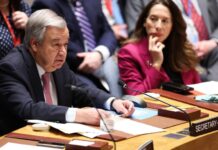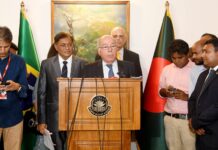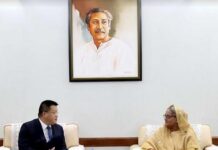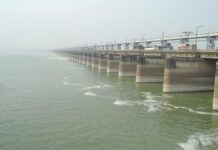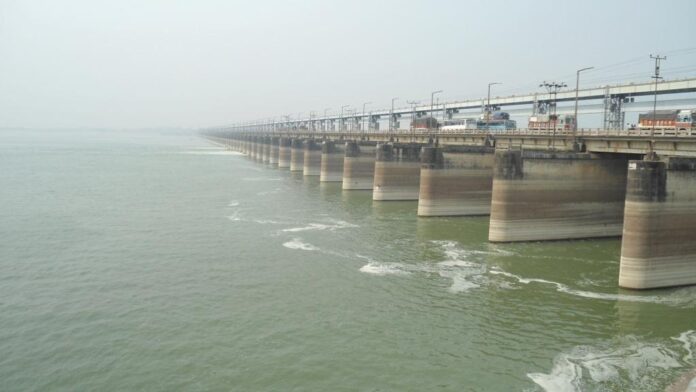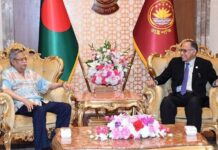Bangladesh has received a good volume of water from the common Ganges River this year, member of the Joint Rivers Commission (JRC), Bangladesh, Dr Mohammad Abul Hossen said today.
“Considering the baseline data of the historical water flow of the river for 40 years (1949-1988), it can be said that Bangladesh has received a good volume of water from the Ganges River this year,” he said.
But, Hossen said, Bangladesh got a little less water against its fair share in first quarter of March this year.
“The Joint Rivers Commission (JRC) of Bangladesh and India will hold a meeting in May next and we will raise the issue at the meeting to know whether India is diverting water from the river,” he said.
According to the Ganges Water Sharing Treaty1996, Bangladesh and India share water of the Ganges River based on every 10-day period from January 1 to May 31.
If the volume of water is 70,000 cusecs or less at Farakka point, both Bangladesh and India will get equal share of water (35,000 cusecs).
If water volume is 70,000 to 75,000 cusecs or more at Farakka point, India will get balance of the flow and Bangladesh’s share will be 35,000 cusecs.
Bangladesh will get the balance of flow and India’s share will be 40,000 cusecs if water availability at Farakka point is 75,000 cusecs or more.
According to the latest data of the JRC, water availability at Bangladesh’s Hardinge Bridge point was 85,316 cusecs, 70,827 cusecs and 69,990 cusecs in first, second and third 10-days of January this year respectively.
In first, second and third 10-days of February, water volume at Hardinge Bridge point was 67,364 cusecs, 59,376 cusecs and 47,891 cusecs respectively.
At the same point, Bangladesh received 42,372 cusecs, 41,368 cusecs and 40,390 cusecs in first, second and third 10-days of March respectively.
Bangladesh got 42,071 cusecs at Hardinge Bridge point in the first 10-day of April this year, the JRC data revealed.
The Ganges Water Sharing Treaty1996 was signed by the then Indian Prime Minister HD Deve Gowda and Bangladeshi Prime Minister Sheikh Hasina on December 12, 1996 in New Delhi.
The treaty established a 30-year water-sharing arrangement and recognised Bangladesh’s rights as a lower-level riparian.
India and Bangladesh share 54 common rivers. The JRC of India and Bangladesh was established in 1972 as a bilateral mechanism to address common border and transboundary rivers issues of mutual interest.


